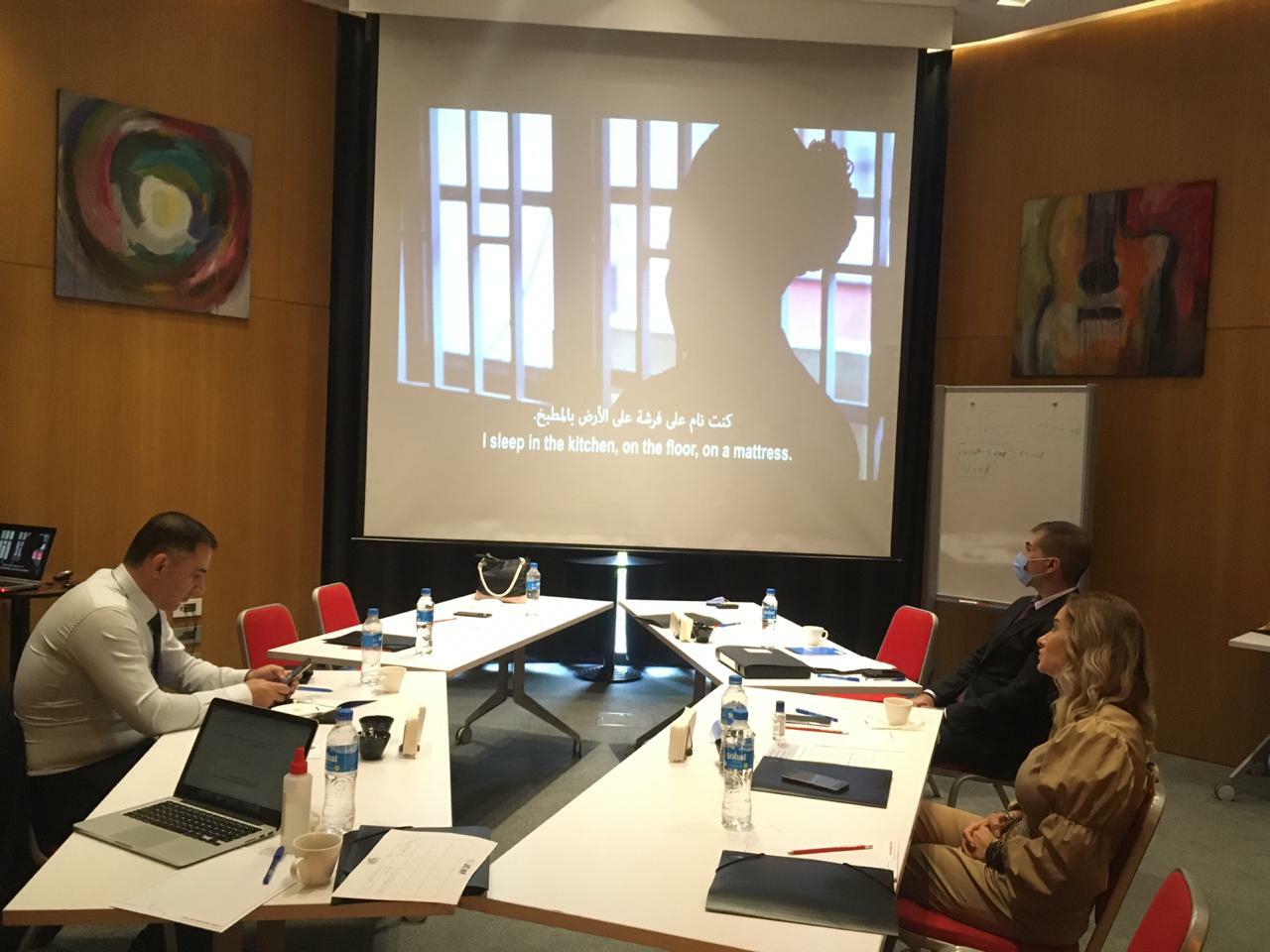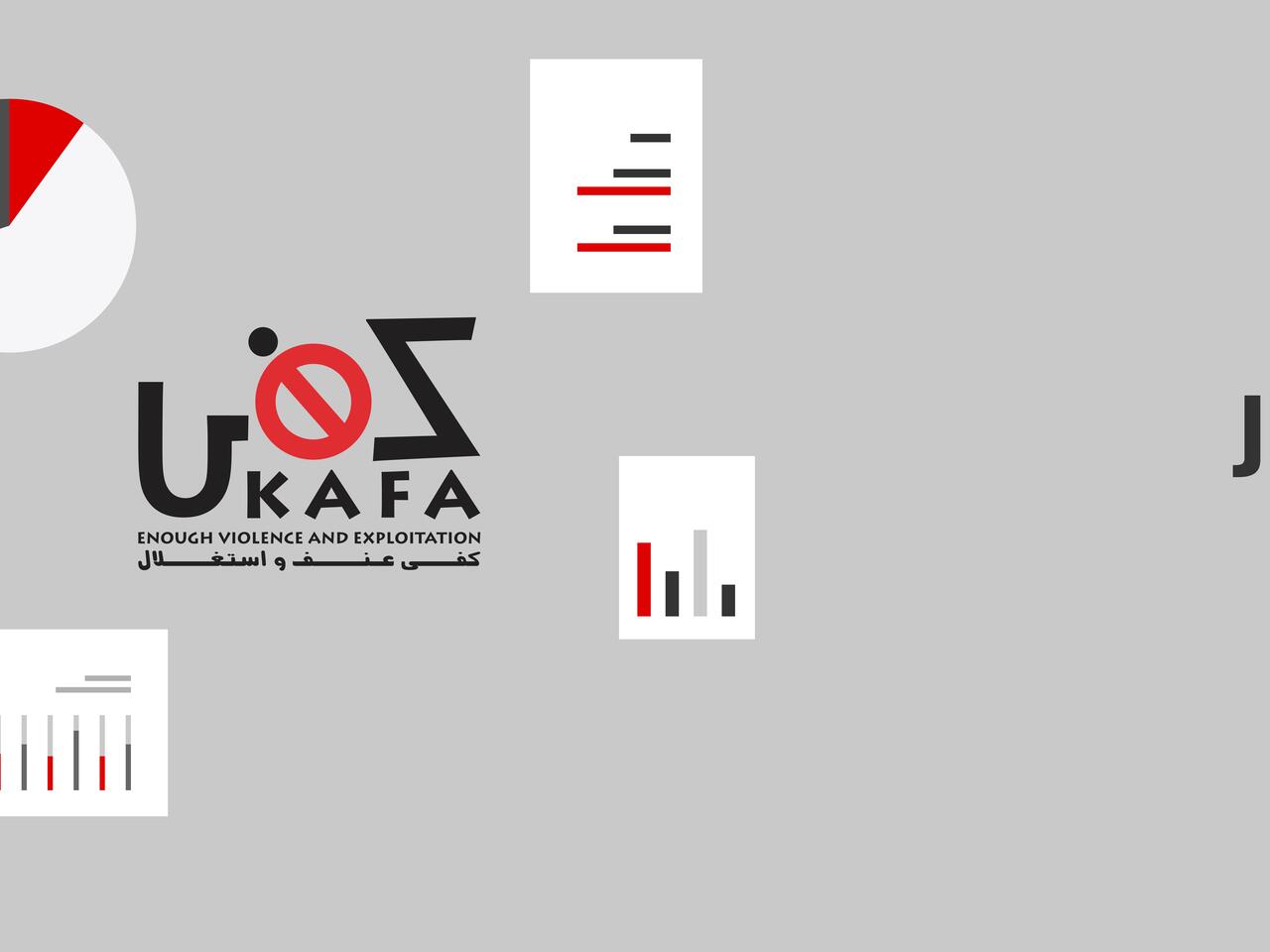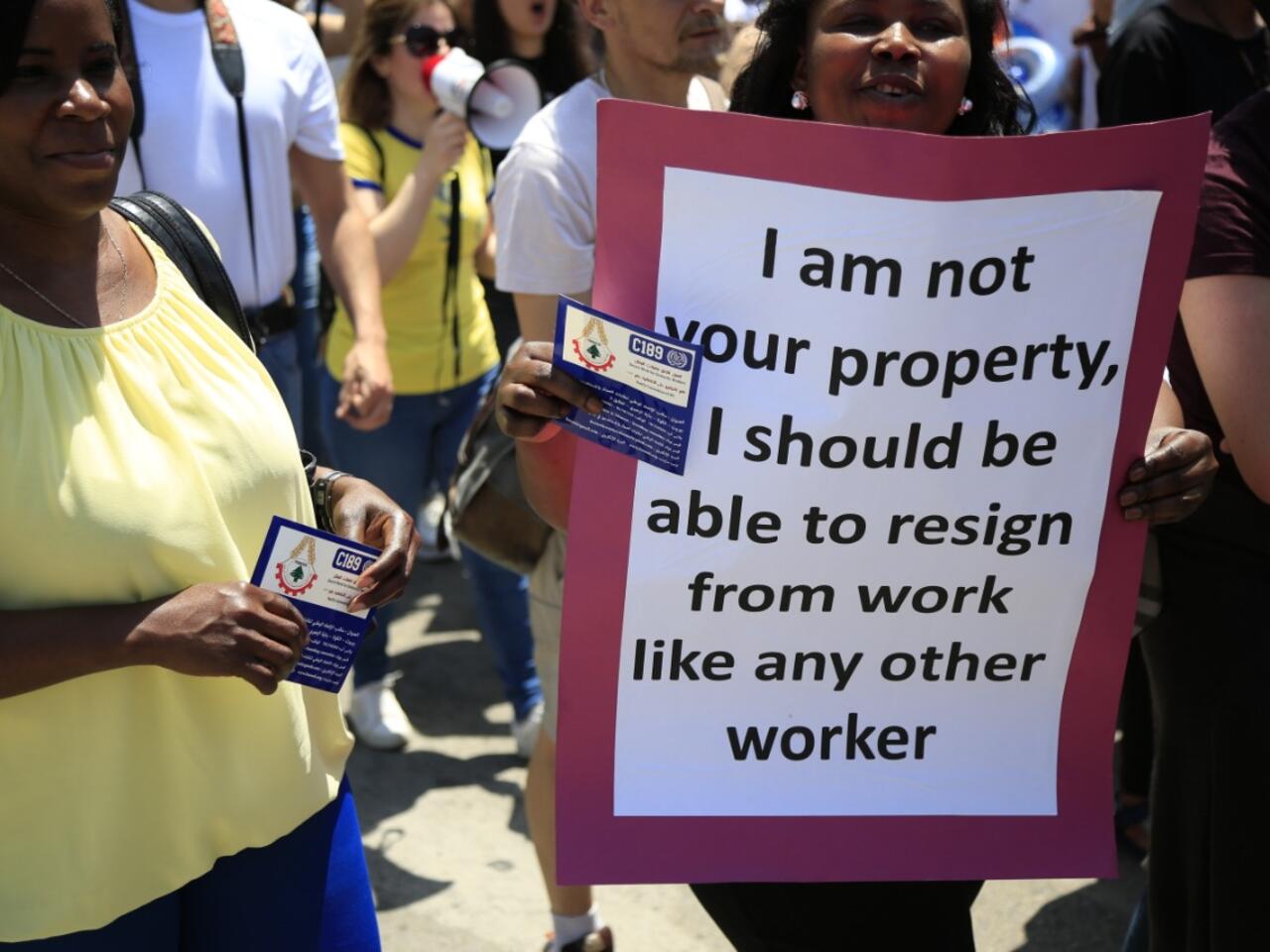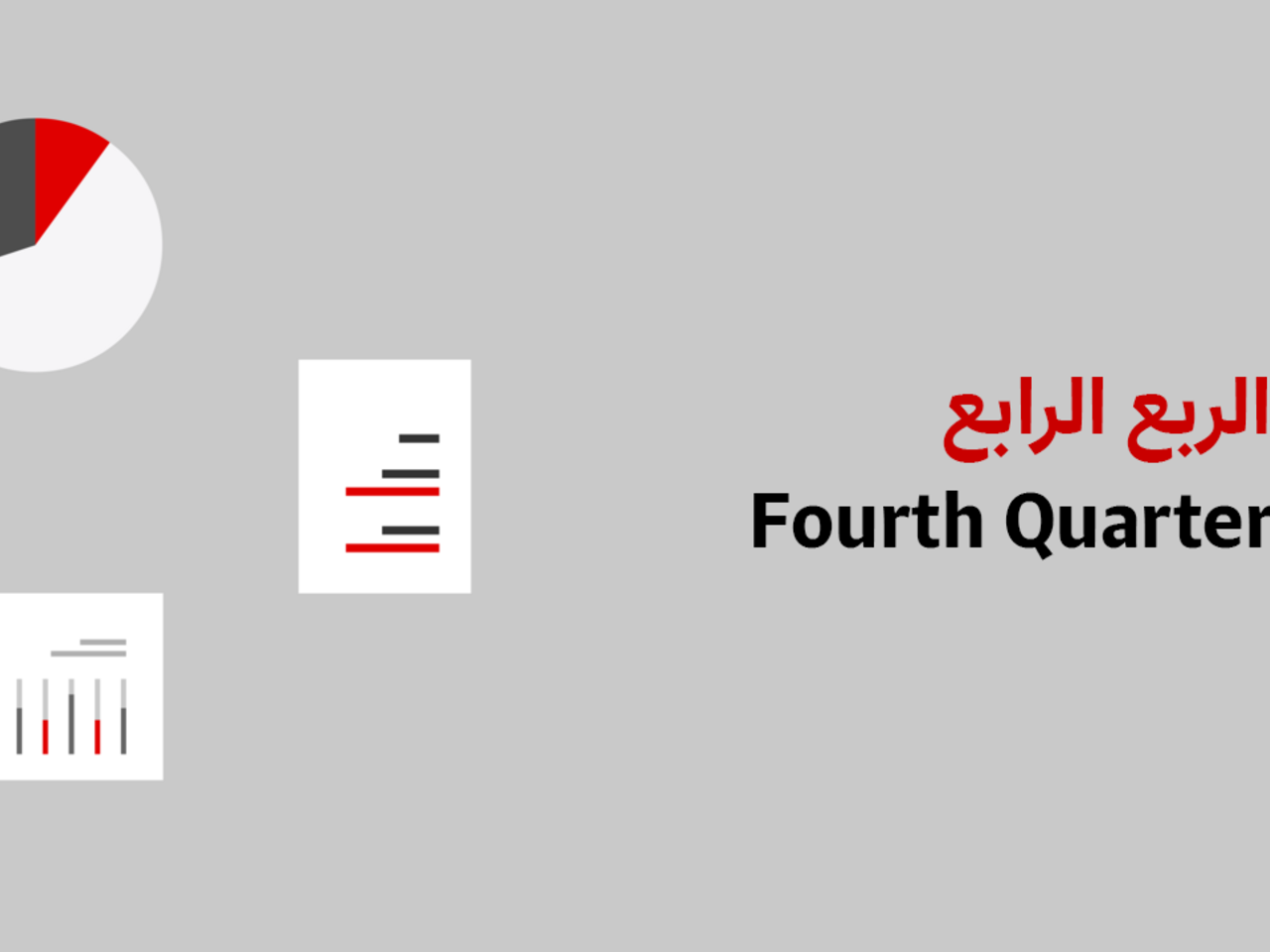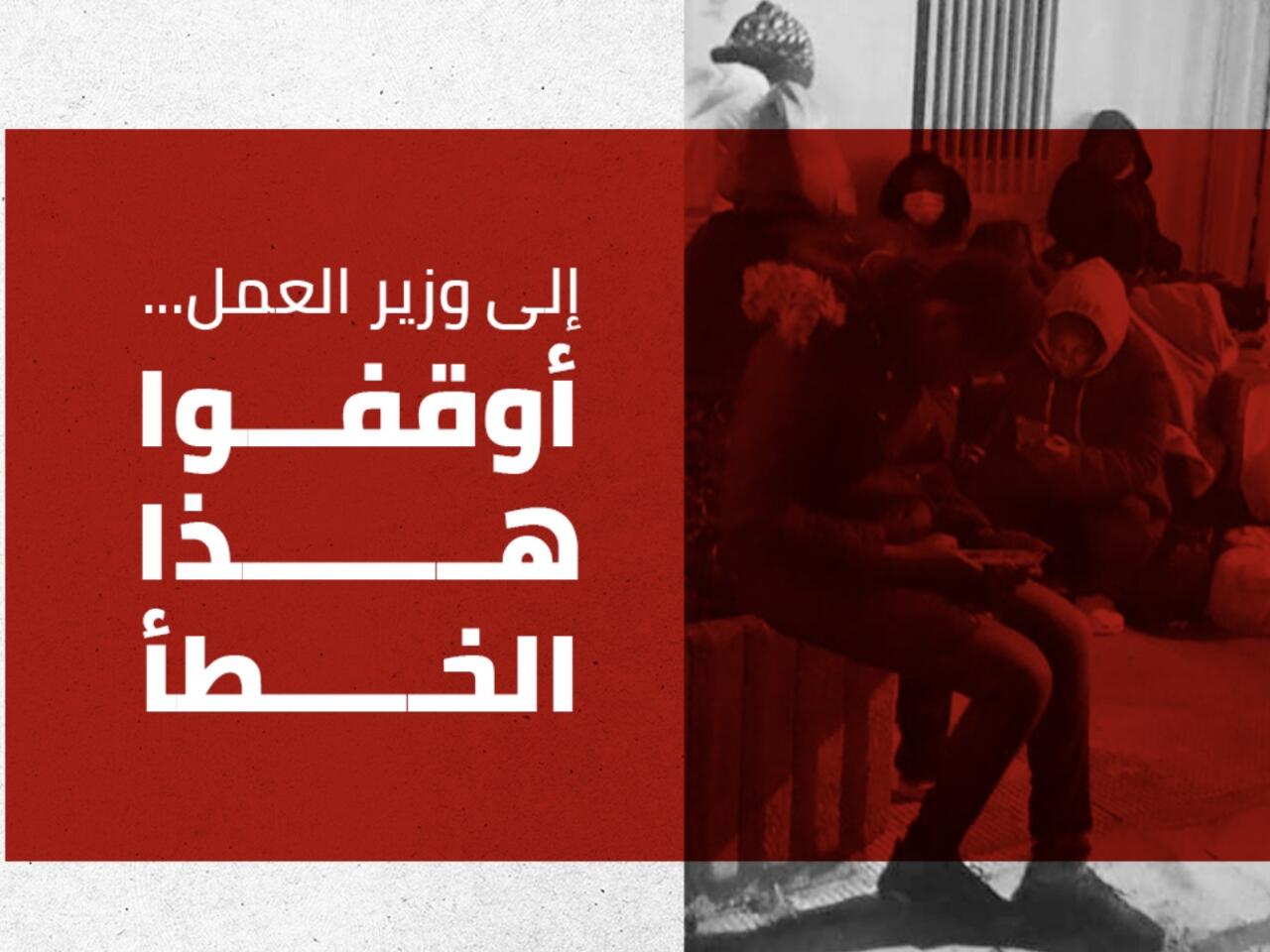
Violence against women is soaring and the State is in deep sleep: Kafa’s May report
"I am afraid. I am afraid I’ll be separated from my children, scared I will be thrown on the street. I cannot live in this nightmare any longer."
This is the state in which women who contact Kafa’s support center are living.
938. This is the number of calls Kafa received during the month of May. It is almost double the number of calls received in April and twice as many as during the month of March.
These calls were divided between follow-ups with women who had already come to the support center and new callers contacting Kafa for the first time after experiencing direct violence, as well as reports from neighbors and family (father, sister), inquiries, and requests for shelter.
The figures are increasing month after month, but they remain lower than the actual number of women experiencing violence, since many are still unable to reach out or report their situation. The extent of hidden violence is therefore worrying.
The husband: The primary abuser
The similar points between calls from the past three months are the identity of the abuser and the type of violence perpetrated.
The husband is the primary abuser and the forms of violence against women are multiple and overlapping, most important of which are psychological, verbal and physical abuse.
Attempts to choke and beating using a chair, as well as threats of beating, being thrown on the street, or separation from children, denial of freedom, humiliation, insults, interdiction to contact the outside world: this is but a sample of what women are subjected to. This is all happening in front of the children who, if they are not being subjected to the beatings, must witness the violence their mothers endure before their eyes.
Fear and suffocation are what push these women to seek help.
In May, 152 women called us for the first time. Last month, the number was 105.
Likewise, women who had contacted the support center in the past, reached a settlement with their husbands and settled back in the relationship have reconnected with the return of violence to their lives.
It should be noted that, after the number of Syrian women contacting Kafa’s support center had declined during the past two months, mainly due to the state of fear, seclusion and isolation experienced by women inside the camps, this month witnessed an increase in the number of callers. It is possible to link this increase to the social support sessions organized by Kafa via WhatsApp since the beginning of the lockdown with Syrian women from 65 camps in the northern Bekaa and follow-ups with the Internal Security Forces and public prosecutors specialized in order to deal with complaints related to domestic violence submitted by Syrian women without taking measures to nullify their Residence status.
This month, a Syrian woman obtained a protection decision after she called the Kafa Center in Bekaa and said she had been subjected to physical violence by her husband. "I suffered displacement, asylum, and poverty, but the most difficult thing for me was that someone close to me would abuse, humiliate and betray me in this way."
Kafa pursues its mission to accompany women and provide them with social services that would help them put an end to the violence they are being subjected to as well as legal services that include legal advice and direct intervention in case of immediate exposure to violence in addition to the submission of protection requests and criminal complaints.
A Sleeping State
It is not guaranteed that the gradual loosening of lockdown measures will have a positive impact on the number of cases related to domestic violence against women. With the catastrophic economic situation persisting, more people losing their jobs, prices soaring, and as political mismanagement of the crisis remains our norm, these factors can contribute to increasing the rate of violence, especially against the most vulnerable.
Therefore, the continued absence of the state in providing services to victims of domestic violence and lack of direct involvement will worsen the problem. The Ministry of Social Affairs intervenes to a limited extent through some associations while it is supposed to provide these services directly. We recall that the Ministry had appointed an expert to conduct a study as a first step to establishing a "Victim Support Fund" which was stipulated in Law 293 on Domestic Violence. What has become of this study and this fund? If associations stop providing these services, which are in fact the State's duties, what will be the fate of women in a context where violence is disturbingly spreading?
Legislators and State institutions have the duty to provide protection for women and the State should allocate budgets to provide services to women who suffer from domestic violence as quickly as possible because the need has become urgent. The State should also implement Law 293, which provides for the creation of a Victims Support Fund and legislators must pass amendments to the Domestic Violence Act, specifically the article on children’s inclusion in the protection decision regardless of the age of custody.
Translated from Arabic by Work with Words

